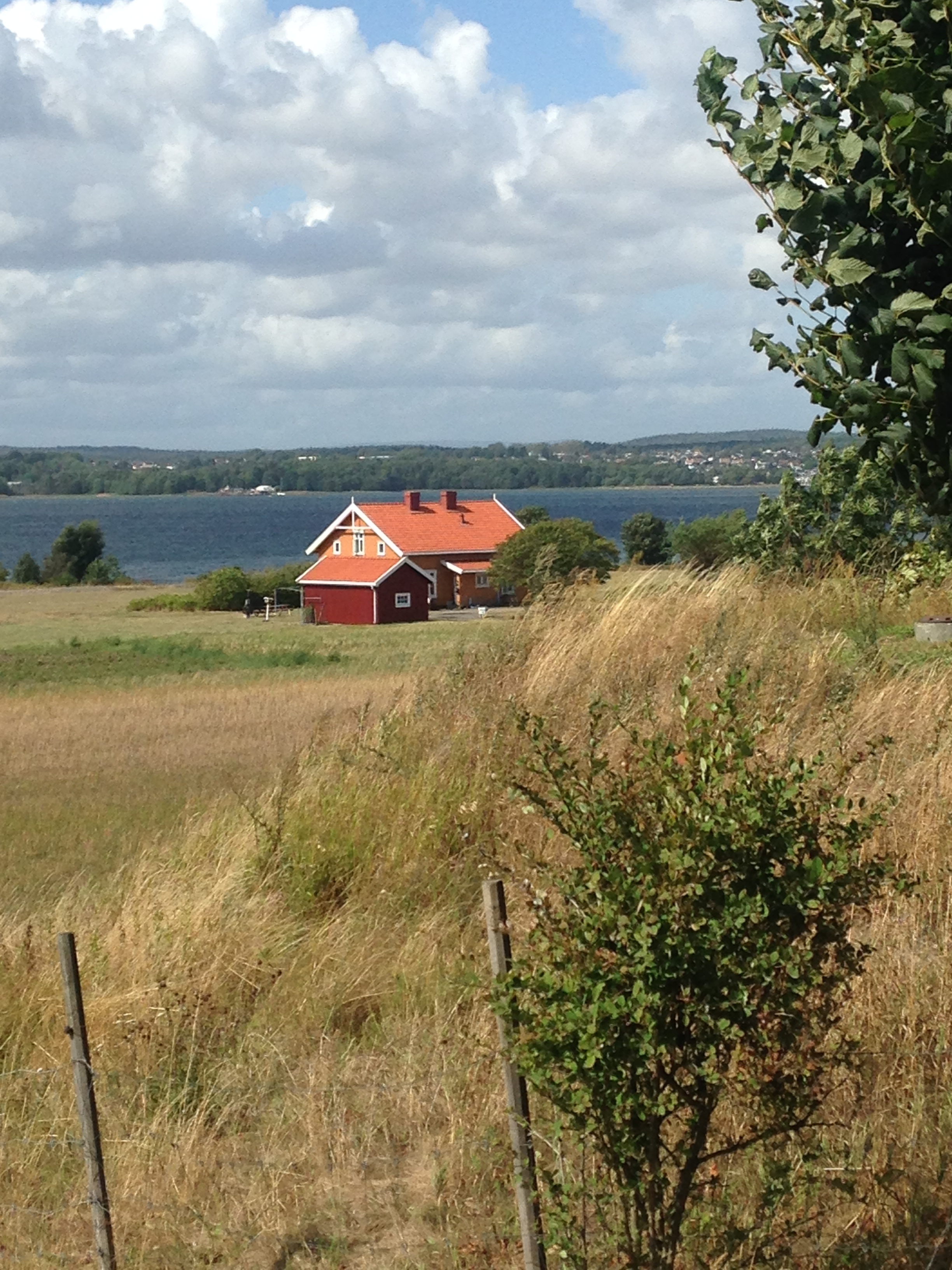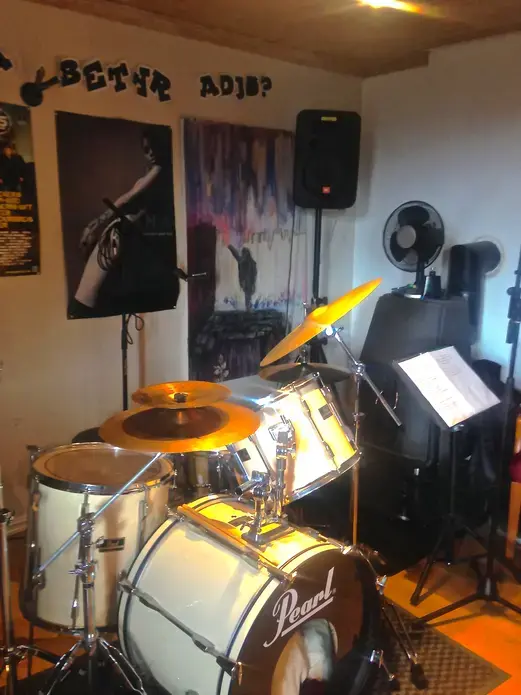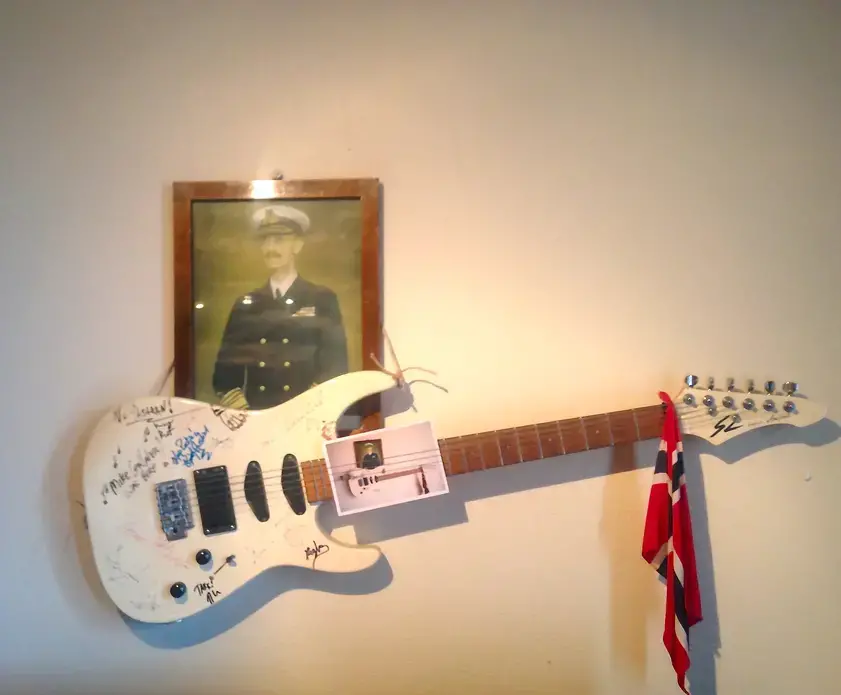On an otherwise peacefully silent island just south of Norway's Oslo Fjord, a rhythm on a drum set mixes with the strings of a worn-out, acoustic guitar. A surge of new life is evident not only in the melody, but in the calloused hands of the musicians themselves.
"I have never touched a guitar before I have come to prison," says a 39-year-old leader of Bastøy Prison Island's blues band, who asked to be called Jonas. "I've been in prison for a little while. I'm starting my ninth year now, so… the first four to five years I was just teaching myself."
We are sitting in the living room of his charming, seaside home on the low-security prison island. It is filled with band posters, scattered instruments, and photographs of past members aligned below the headline "wall of shame."
He laughs as he tells me the name of the band. "Skyldig Som Faen." I look to my translator for help. "Guilty as Hell," he smiles.
Proudly displayed on the wall behind him is a poster from the International Notodden Blues Festival in Norway. "We just played at Notodden Blues Festival. Europe's biggest Blues Festival," he beams. "We got our own stage. We called it the 'jailhouse stage'."
He stops joking for a moment and looks down in thought. "It has saved the prison a lot of money in therapy sessions. This was always my escape [when I was] in the maximum-security prison. To sit down with a guitar and use music as an escape from the reality. And then I come here and it is a part of the reality as I step forward. It helps."
Sigurd Vedvik, one of 35 guards at the prison, discusses how opportunities for Bastøy inmates stem from philosophies of security. "There is a big difference between being locked up in a traditional prison where the focus is on static security, typically like what you see in movies, and how we think and work here with dynamic security." He continues, "[dynamic security] is a part of the inner life in the prison environment… being able to do these activities together."
Not only do Bastøy inmates participate in activities that enhance problem solving, team building, and communication among each other, they also build relationships with Bastøy staff. Vedvik describes the typical interaction: "We have a tone of camaraderie. But at the same time, balancing and maintaining professionalism," he says. "Inmates are respected as humans… we don't go around beating and avenging. We limit freedom in the most humane way possible. We have a good team that works very intentionally with life after the sentence."
For Bjørn Andersen, former Bastøy inmate and blues band creator, life after prison was the beginning of a new kind of musical therapy—the Blues Factory.
Located in Sandefjord, Norway, Andersen's Blues Factory offers music education to Norwegian inmates, released inmates, and troubled youth. Participants have access to professional music lessons, performance experience, and the chance to learn the ins and outs of playing in a band.
Although he has completed his sentence, Andersen continues to keep in touch with Bastøy Prison by working to coordinate practices, concerts, and new opportunities for the Bastøy blues band. His efforts are highly regarded among the staff.
As fans during soccer games and county chorus concerts, partners on fishing trips, and even blues band managers, members of the Bastøy community make huge efforts to remain a positive presence throughout an inmate's journey in rediscovering a sense of purpose and success.
Reflecting on his own newfound sense of success, Jonas shows me some performance footage from the computer in his college-style bedroom.
"Like my mother said, she never in a million years thought she was going to see me standing on a stage," he says. "Most of us guys in prison, we don't get a [pat on the back] for the things we have done before we come to prison. We are not used to this… So it's a nice feeling to do something that people think is good."









